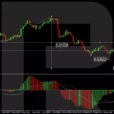Ahead of next Monday’s meeting, EU chief negotiator Michel Barnier was in no mood to offer his UK counterpart David Davis an olive branch as he once again highlighted the obligations that the UK must adhere to before trade talks could commence. Barnier said that there still remained ‘numerous differences’ on the rights of EU expats in the UK and that it would be a problem if the European Court of Justice was not allowed to be the ultimate guarantor of rights, something that the UK strongly opposes.
And turning his attention to the UK’s exit bill from the EU, put by the latter at around EUR100 billion, Barnier said, “It’s not an exit bill, it’s not a punishment, it’s not a revenge, it’s simply settling accounts. It’s not easy and it might be expensive, but we are not asking for a single Pound or Euro more than they have legally agreed to provide. You can discuss this or that budget line, but they have to start by recognising that they have entered into commitments.”
They size of the EU’s exit bill, recently described by UK Foreign Secretary Boris Johnson as ’extortionate’ could well prove to be the first, insurmountable block between the two parties, leaving the UK without any trade agreements when the Brexit process concludes in March 2019.
The Repeal Bill will also be presented to Parliament Thursday, the start of the UK converting thousands of pieces of EU law into domestic law. The Bill will be looked at, amended and is expected to be voted on in the next two-three months.
While GBP pushed ahead against an albeit slightly weaker USD to trade just under 1.29000, against the EUR the British Pound fell to a fresh eight-month low, despite better-than-expected UK unemployment figures. GBP rallied back against the single currency but the upward trend in EUR/GBP, seen since late-April, remains intact on the weekly chart.











Leave A Comment